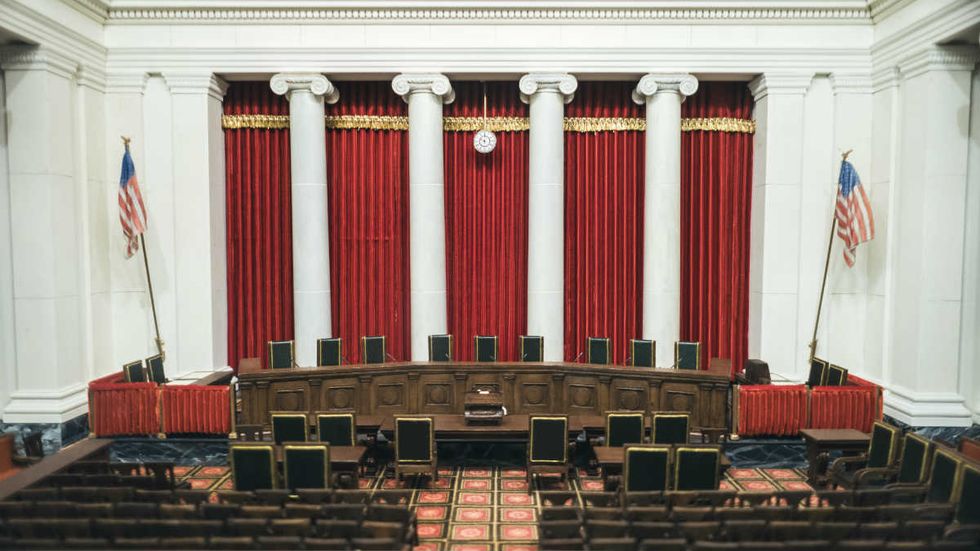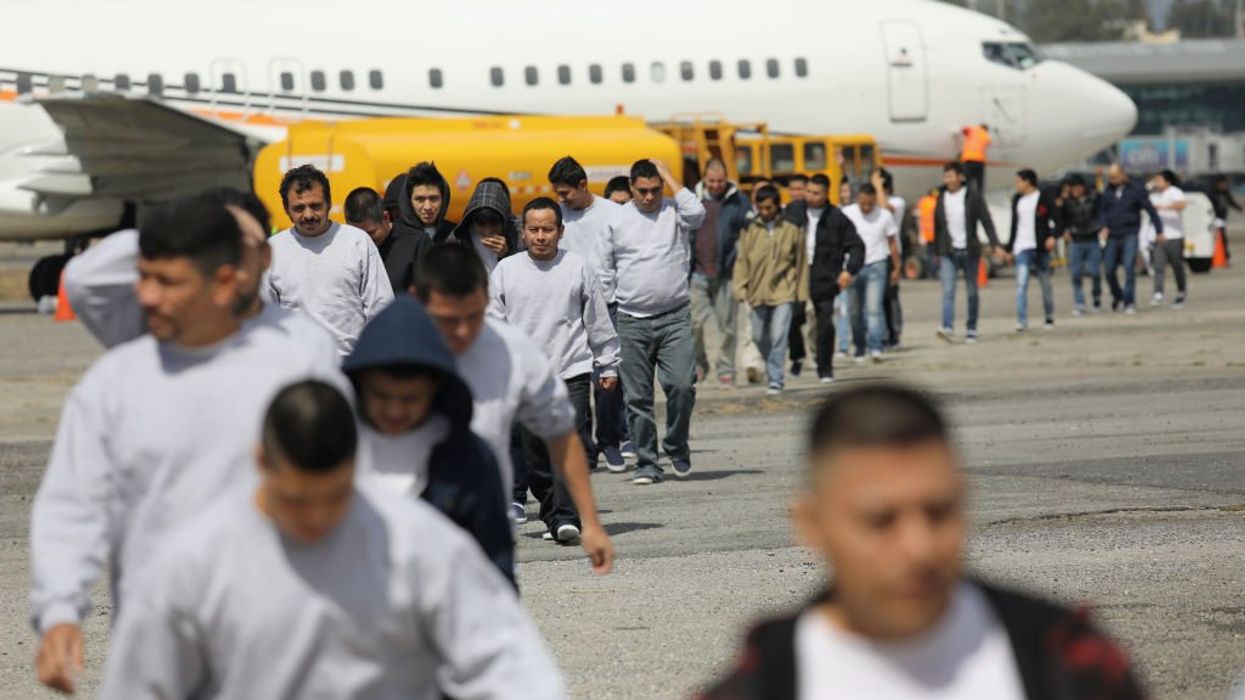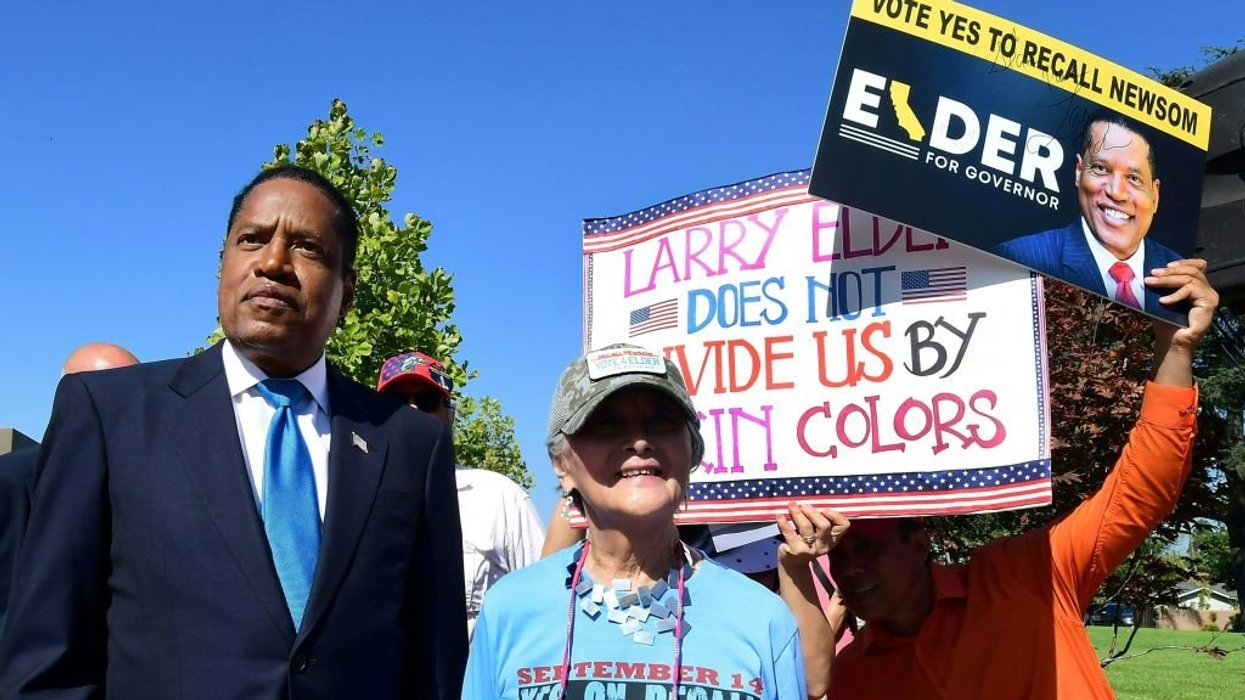
© 2025 Blaze Media LLC. All rights reserved.
At SCOTUS this week: Conservatives won an immigration battle but continue to lose the war
March 20, 2019
If lower courts, over the course of a few years, systematically gut an area of our law and Constitution with completely illegitimate rulings, and finally, after five years, the Supreme Court walks back one of their rulings while explicitly preserving the foundation of their civil disobedience against the law, is that even a victory?
A headline on Tuesday heralded (or decried) a “Trump victory on immigration detention” at the Supreme Court. In fact, this has nothing to do with Trump; the case at hand was one of the many ways California district judges and the Ninth Circuit impeded even the Obama administration from deporting the worst of the worst. In Nielsen v. Preap, the Supreme Court reversed a Ninth Circuit decision preventing ICE from detaining criminal aliens without bond hearings who were released by sanctuary cities for a period of time before ICE recaptured them. After allowing countless violent criminal aliens to go unapprehended and commit an unknown number of avoidable crimes for almost five years, the Supreme Court finally slapped down this nonsense.
That is the good news.
The bad news is that the five justices in the majority just foreclosed only one of the many avenues the Left has to block deportations and violate our sovereignty in just one step of the ever-growing deportation process. As the lower courts and the legal profession continue to engage in civil disobedience against our immigration laws, the Supreme Court, in the Preap decision, implicitly blessed almost all of the other lawsuits in similar but slightly different cases by explicitly greenlighting judicial jurisdiction to hear these cases to begin with. Clarence Thomas, who was joined by Gorsuch in opposing this rationale, made it clear that current law bars the courts from hearing all litigation against the deportation procedures at this step in the process. Thus, the difference between the concurring opinion of Thomas and Gorsuch and the majority opinion of the other three Republican appointees is akin to the difference between a surgeon slicing out 100 percent of a tumor and slicing out only part of a tumor, which, as anyone knows, is all the difference.
Open-borders political and legal advocates work together to create policies and legal loopholes to direct a simultaneous push-pull on our immigration system and legal precedents. Everyone in this country should agree that illegal aliens who have been convicted of crimes (even in a state like California) should be immediately detained by ICE upon their release from prison so they can begin deportation proceedings. Yet sanctuary states let them out onto the streets without notifying ICE. Given the complexity of early release and good time credits accrued in prison, it’s impossible for ICE to fully keep tabs on who is being released when sanctuaries don’t allow them to station agents in the jails and prisons.
That’s only half the problem. After they create a dynamic where it takes a while for ICE to discover and apprehend the aliens on their own, the lawyers swoop in and say that ICE can no longer detain them based on the original criminal conviction because there was a gap in time between release from prison and re-apprehension by ICE. Indeed, in 2014, a district judge in northern California issued an injunction on these detainers, causing unimaginable harm to public safety by releasing criminal aliens on bail. Just the fact that these absurd rulings can result in such a consequential result for 4-5 years when we all know the Supreme Court will overturn the ruling is in itself a constitutional crisis. We need to end these lower court injunctions once and for all.
But it’s worse than that. Our statutes, for the most part, are not broken. In 1996, Congress, with near unanimous support and the signature of President Bill Clinton, passed an immigration reform bill that was designed to shut down all this lawfare. The numerous statutes explicitly stripped the courts of any power to adjudicate cases, much less place injunctions, on detention of aliens in several stages of the deportation process. The language is as categorical as can be. For example, §1252(b)(9) prohibits all federal courts from reviewing “all questions of law and fact, including interpretation and application of constitutional and statutory provisions, arising from any action taken or proceeding brought to remove an alien from the United States,” except for the final stage after the final deportation order is given, which was not the case here.
Yet Justices Alito, Roberts, and Kavanaugh have now affirmed that this unanimous action of Congress explicitly barring the courts from getting involved is meaningless. They found a lawyerly way of explaining why these three statutes won’t apply here. The end result is that the lower courts will continue to come back with more injunctions on 99 percent of the other cases even with criminal aliens at this stage of deportation, and certainly in other stages of the deportation process. Remember, we already thought we won a big case last year in Rodriguez v. Jennings, reversing the Ninth Circuit on demanding bond hearings for criminal aliens every few months in ICE detention. Yet it didn’t foreclose on this case because it was slightly different.
As Thomas said clearly, “I continue to believe that no court has jurisdiction to decide questions concerning the detention of aliens before final orders of removal have been entered.” He was joined only by Justice Gorsuch.
Alito, writing for the majority, explicitly invited the immigration lawyers not only to come back with more illegal adjudications against statute, but to then file constitutional claims on these detentions. “Our decision today on the meaning of that statutory provision does not foreclose as-applied challenges—that is, constitutional challenges to applications of the statute as we have now read it.”
Then, Kavanaugh wrote another concurrence in which he wanted “to emphasize the narrowness of the issue before us and, in particular, to emphasize what this case is not about.” He went on to affirm previous bad precedent of the court, which has become a hallmark of his tenure on the bench so far.
Folks, this case is a textbook example of how we lose the war while winning occasional battles. Since most of the “conservative” justices refuse to categorically rebuke the lower courts on standing, jurisdiction, or more forcefully on the merits of constitutional claims for rights for aliens, they are almost overtly allowing the lower court civil disobedience to continue. Relying on the Supreme Court to tame this disobedience is like spitting in the wind. Every injunction lasts for years, doing irrevocable harm to our sovereignty, security, and society. In some cases, the Supreme Court agrees with the rulings; in others, it tacitly allows the injunctions to stand without taking up the appeal. But even when the justices reverse the orders, they do so on such narrow grounds that they essentially grant a full victory to the truculent immigration law profession with endless resources to come back for more.
Heck, it’s gotten so bad that now even after the Supreme Court sided with Trump in light of the unprecedented lower court injunction mandating that Trump, as commander in chief, be forced to accept “transgenders” into the military, a lower court is now refusing to take off the injunction!
This is why it’s a joke for some of my colleagues to suggest that we need to “fix our laws.” One could never write laws clearly enough for the judicial activists who openly want to strike down these laws and believe that immigration enforcement is unconstitutional. That’s what the Ninth Circuit did last week when it created constitutional rights to habeas corpus in deportation proceedings. The laws passed in 1952 and 1996 are as clear as can be in most circumstances. And relying on Roberts, Kavanaugh and company to push back in a meaningful way has proven to be a fool’s errand.
This, at its core, is why we are facing the emergency at our border today, and this is why it will continue to get worse until the other branches begin asserting their will against the inferior courts. If the Supreme Court refuses to make statute and its own case law supreme over the inferior courts, the Trump administration should do it.
#mc_embed_signup{background:#fff; clear:left; font:14px}
/* Add your own MailChimp form style overrides in your site stylesheet or in this style block.
We recommend moving this block and the preceding CSS link to the HEAD of your HTML file. */
Want to leave a tip?
We answer to you. Help keep our content free of advertisers and big tech censorship by leaving a tip today.
Want to join the conversation?
Already a subscriber?
Blaze Podcast Host
Daniel Horowitz is the host of “Conservative Review with Daniel Horowitz” and a senior editor for Blaze News.
RMConservative
Daniel Horowitz
Blaze Podcast Host
Daniel Horowitz is the host of “Conservative Review with Daniel Horowitz” and a senior editor for Blaze News.
@RMConservative →more stories
Sign up for the Blaze newsletter
By signing up, you agree to our Privacy Policy and Terms of Use, and agree to receive content that may sometimes include advertisements. You may opt out at any time.
© 2025 Blaze Media LLC. All rights reserved.
Get the stories that matter most delivered directly to your inbox.
By signing up, you agree to our Privacy Policy and Terms of Use, and agree to receive content that may sometimes include advertisements. You may opt out at any time.



